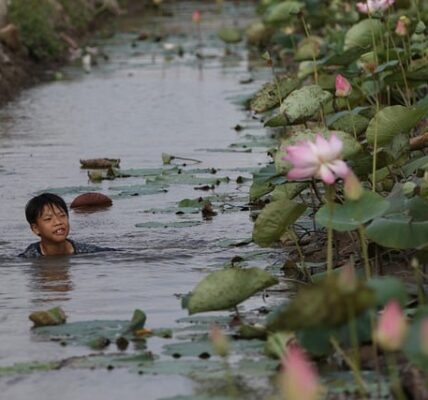Digital literacy has become an essential skill in today’s technology-driven world. As a parent, educator, or caregiver, it’s crucial to teach kids responsible tech usage habits that will benefit them for years to come. In this article, we’ll explore the importance of teaching kids digital responsibility and provide practical steps on how to do so.
As our children grow older, they’re constantly exposed to technology, from smartphones and tablets to social media platforms and online games. While technology can be a valuable tool for learning and entertainment, it’s equally important to teach kids how to use it responsibly. This includes understanding online safety, digital etiquette, and the impact of their online actions on others.
Teaching kids responsible tech usage is not just about preventing cyberbullying or online predators; it’s also about helping them develop essential life skills like critical thinking, problem-solving, and communication. By teaching kids how to use technology in a responsible manner, we can help them navigate the digital world with confidence and make informed decisions about their online presence.
So, what are some key points to consider when teaching kids responsible tech usage? Here are some steps you can follow:
Set Clear Boundaries and Expectations
The first step in teaching kids responsible tech usage is to set clear boundaries and expectations. This includes discussing the rules of online behavior, such as not sharing personal contact information or posting sensitive content. It’s also essential to establish consequences for breaking these rules, such as losing screen time or having a conversation with a parent.
Establishing consistent rules and consequences helps kids understand what is expected of them and teaches them to make responsible decisions about their online behavior. By setting clear boundaries, you can help prevent kids from engaging in risky behaviors like cyberbullying or online predators.
Teach Online Safety and Security
Teaching kids online safety and security is crucial for protecting them from cyber threats like phishing scams, malware, and identity theft. This includes educating them on how to create strong passwords, use two-factor authentication, and be cautious when clicking on links or downloading attachments.
You can also teach kids about the importance of keeping their personal devices and online accounts secure. This includes using antivirus software, updating operating systems and apps regularly, and being mindful of public Wi-Fi networks.
Encourage Critical Thinking and Media Literacy
Critical thinking and media literacy are essential skills for navigating the digital world. By teaching kids to critically evaluate online content, they can develop a healthier relationship with technology and make more informed decisions about what they consume online.
This includes teaching kids to recognize biases in online content, identify misinformation, and understand the context behind online news and social media posts. By promoting critical thinking and media literacy, you can help kids become more discerning consumers of digital information.
Model Responsible Tech Behavior
Finally, it’s essential to model responsible tech behavior yourself. Kids learn from what they see, so make sure you’re practicing what you preach. This includes limiting your own screen time, using technology in moderation, and being mindful of your online presence.
By modeling responsible tech behavior, you can help kids understand the importance of digital responsibility and encourage them to adopt similar habits. Remember, kids are more likely to imitate what they see, so make sure you’re setting a good example!
Foster a Positive Online Environment
Fostering a positive online environment is crucial for kids’ emotional well-being and social development. This includes teaching them about the importance of kindness, empathy, and respect in online interactions.
You can also encourage kids to engage in positive online behaviors like sharing their passions, connecting with others who share similar interests, or participating in online communities that promote creativity and collaboration.
Monitor Progress and Provide Feedback
Finally, it’s essential to monitor progress and provide feedback on kids’ tech usage habits. This includes tracking their screen time, monitoring their online activity, and having conversations about their experiences with technology.
By providing regular feedback and encouragement, you can help kids stay motivated and engaged in learning responsible tech usage habits. Remember, teaching kids digital responsibility is an ongoing process that requires patience, consistency, and positive reinforcement!
Northstar Digital Literacy is a comprehensive framework for assessing digital literacy skills, including online safety, security, and media literacy. By using this framework, you can gain a deeper understanding of your child’s digital literacy skills and identify areas where they may need more support.
In conclusion, teaching kids responsible tech usage is an essential life skill that requires patience, consistency, and positive reinforcement. By setting clear boundaries, teaching online safety and security, encouraging critical thinking and media literacy, modeling responsible tech behavior, fostering a positive online environment, and monitoring progress, you can help your child develop the skills they need to navigate the digital world with confidence.
Remember, teaching kids digital responsibility is an ongoing process that requires ongoing effort and commitment. By working together with your child and promoting responsible tech usage habits, you can help them become confident, capable, and responsible individuals in the digital age!
Digital literacy is a critical skill for success in today’s technology-driven world. By teaching kids responsible tech usage habits, we can help them develop essential life skills like critical thinking, problem-solving, and communication. With patience, consistency, and positive reinforcement, you can help your child become a confident and responsible digital citizen!




